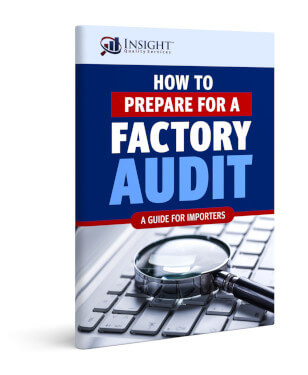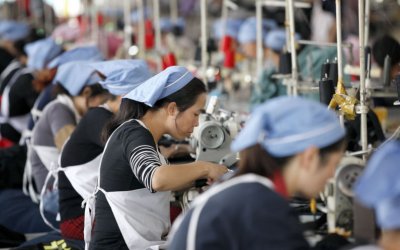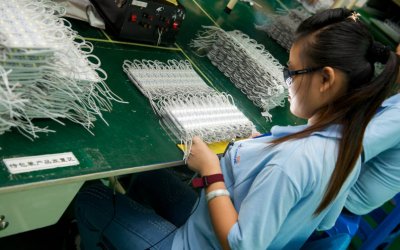When you’re getting started in a consumer product business, you need to choose the supplier that best meets your needs. If you’ve searched Alibaba for Chinese suppliers or are looking at vendors elsewhere, you may have already realized that many of them are trading companies.
If you don’t know what trading companies are or how they differ from manufacturers, this article is for you. We’ll discuss how these businesses work and how to decide if you should work with one instead of going factory direct.
Table of Contents
What is a Trading Company?
A trading company is a business that does not manufacture your product itself. Instead, it works with one or more manufacturers, buying their products and exporting them. Trading companies serve as a middle man between the buyer and the factory.
You may be wondering, “Why would I want to deal with a middle man, and won’t that just increase my costs?” The answer is, “Maybe,” but trading companies can also add their own value to make the relationship worthwhile. And in some cases, they may even offer you a lower cost, so it’s essential to understand how these companies work to determine whether the relationship makes sense for you.
How Does a Trading Company Work?
A trading company purchases products from a factory with whom they likely have a close relationship. They also act to bridge certain gaps between the buyer and the manufacturer. These can include communication, relationship management, or quality management.
A good trading company does more than just buy products and resell them — they should add some kind of value. Otherwise, it may not be worth it to work with them.
You should understand the benefits a trading company can offer, so you can evaluate any given potential relationship and determine if it’s the right fit. Let’s discuss some benefits and drawbacks of working with trading companies.
Should You Work With a Trading Company or Manufacturer?

Below we list some common benefits, a drawback, and a neutral item that may or may not come into play.
Potential Benefits
- Communication and Customer Service – Because trading companies are less focused on manufacturing, they tend to emphasize working with the customer. Their employees will often speak better English than the employees of a manufacturer and may be easier to work with.
- Filling in Experience Gaps – They may have deep experience in a product category that a beginning importer wouldn’t have. If you have minimal experience with your product, they could be able to help fill these gaps.
- Lower MOQs – A trading company may purchase large quantities from their manufacturers and be able to offer you a low minimum order quantity (MOQ) because of their factory relationship. If you are just starting out, you may not be able to purchase the large quantities required by a factory, or the factory might charge you more.
Potential Drawbacks
- Less control – Because you are not working directly with the factory, you will have less impact on the manufacturing process and lower leverage to affect production.
Neutral Items
- Pricing – Although a trading company earns its money by adding a markup, it may have preferential relationships with its factories. As such, a trading company may be able to offer a competitive price despite its markup.
Look at the Value Proposition a Supplier Offers You
If you are considering whether to work with a trading company or factory, you should consider the value proposition that each offers. If a trading company is offering better service and lower MOQs, filling experience gaps, or adding value in some other way, you should consider these factors.
Some people feel that you cannot trust trading companies in China and elsewhere. And while some trading companies may not be trustworthy, the same can be said of some factories. It is essential to do your due diligence when vetting any potential supplier.
Many importers think they should go factory direct to get better pricing, but this is not always the case. If you are purchasing large enough quantities, have experience with importing, and want to have more of an impact on the factory’s processes, you should consider working factory direct.
Consider conducting a factory audit to assess the supplier’s practices and assure you’re starting the relationship off on the right foot.
Free Guide
How to Prepare for a Factory Audit
A factory audit helps you assess a supplier's systems, capacity, workplace environment, or capabilities to ensure they meet your requirements as a buyer.
But which type of audit should you conduct, and which points should you cover on your checklist? In this free guide, you'll learn how to run an effective supplier assessment.





Thank you for this trading information
We’re glad it was helpful to you.